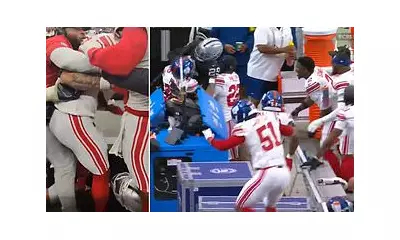
In a startling revelation that has sent shockwaves through the golfing world, PGA of America chief executive Seth Waugh has broken his silence on the escalating crisis of fan abuse that marred the recent Ryder Cup in Rome.
The Abuse Epidemic: Golf's Ugly New Reality
Waugh delivered a sobering assessment of the toxic atmosphere that has been creeping into golf's most prestigious team event. "The abuse has become something different," he confessed, highlighting a disturbing trend that saw players and their families targeted in unprecedented ways.
The situation reached such concerning levels that security personnel were forced to intervene multiple times, removing disruptive spectators from the course. This marks a dramatic departure from the traditional spirit of sportsmanship that has long defined the Ryder Cup.
McIlroy's Shock Resignation: The Inside Story
In a parallel development that has stunned the golf community, Rory McIlroy has abruptly resigned from his position on the PGA Tour Policy Board. The decision comes after months of intense internal conflict, particularly surrounding the tour's controversial framework agreement with Saudi Arabia's Public Investment Fund.
Waugh revealed that McIlroy's departure stems from fundamental disagreements over the tour's future direction. "He's been frustrated about a number of things," Waugh explained, pointing to the Northern Irishman's increasing isolation on key policy matters.
Personal Turmoil and Professional Crossroads
The timing of McIlroy's resignation is particularly poignant, coming amidst significant personal changes. The golf superstar recently finalized his divorce from wife Erica Stoll, adding emotional weight to his professional decisions.
Waugh expressed sympathy for McIlroy's situation, noting: "He's adding something to his life, not subtracting, with all that's going on." This suggests the four-time major champion is seeking to simplify his commitments during a period of personal transition.
The Road Ahead: Golf at a Crossroads
These developments represent a critical moment for professional golf. The sport faces simultaneous challenges: addressing the deterioration of fan behaviour at premier events while navigating internal governance conflicts that threaten to reshape the professional landscape.
As Waugh and other golf administrators grapple with these issues, the future of player-fan interactions and tour governance hangs in the balance. The coming months will prove crucial in determining whether golf can return to its traditions of respect and sportsmanship while managing the commercial pressures of modern professional sport.





